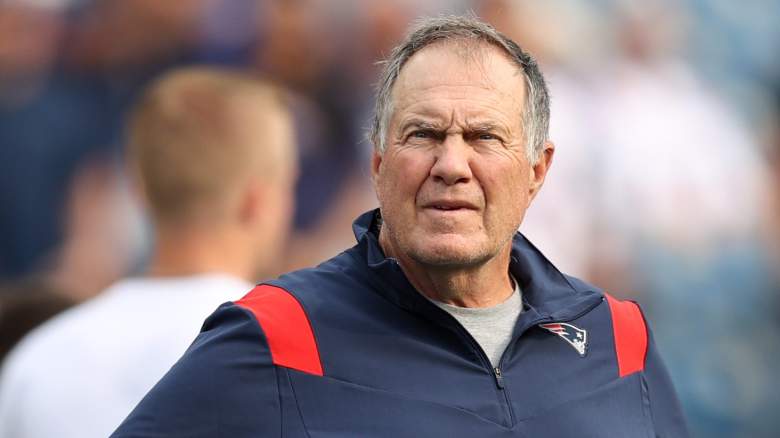
Getty Bill Belichick
The NFL and its officials made it clear in Week 2, taunting, standing over opponents and excessive, in-your-face trash talk on the field will result in costly penalties.
When asked about the NFL cracking down on taunting penalties, New England Patriots head coach Bill Belichick said this on the Greg Hill Show on WEEI:
“In general, I don’t really think there’s a place for taunting in the game. I think that’s poor sportsmanship & it leads to other things. It leads to retaliation, and then where do you draw the line?”
It is safe to say any Patriots player whistled for that kind of infraction in 2021 will likely feel Belichick’s wrath in the form of a benching or demotion.
Are the Penalties Excessive?
The NFL is sometimes guilty of being too heavy handed in the execution of their new initiatives. The league’s support of worthy causes can sometimes seem contrived and the crackdown on certain tendencies can often be too strict.
You can make the argument the focus on taunting is the latest example.
Many fans, journalists, and athletes from other sports chimed in to voice their displeasure. Yahoo! Sports’ Jake Baer chronicled some of the more egregious examples of taunting penalties from Week 2.
Baer wrote:
After an ominous preseason and questionable start in Week 1, the NFL saw a string of taunting penalties in Week 2 that left fans angry and wondering who on earth asked for players to be severely punished for even mild celebrations when directed at their opponent (the answer is NFL owners mad about Tyreek Hill). On Sunday, we watched a player penalized for spinning a football. And flashing the incomplete sign. And clapping. Los Angeles Chargers tight end Jared Cook got called for one over a run-of-the-mill touchdown celebration, but had that called back due to an illegal shift penalty. The worst moment, though, came during the game between the Tennessee Titans and Seattle Seahawks. With the Titans down 30-23 and driving to tie the game, Ryan Tannehill went for a deep pass to A.J. Brown that landed incomplete. Seahawks cornerback D.J. Reed, who was covering Brown, got up, flexed while looking at Brown and walked away. Then he received a 15-yard penalty for taunting, moving the Titans into Seahawks territory. Fortunately for Reed and the Seahawks, they still held the Titans scoreless on that drive, but not the next one. The Titans would eventually win a wild game 33-30 in overtime. The episode was more a warning, that in a major game, at a major moment, a player will be penalized for a celebration that wouldn’t have batted an eye last season. The reception for the crackdown on taunting has been almost universally negative in the diverse world of NFL Twitter. Current NFL players hate it. Former NFL players hate it. Current NBA players hate it. Reporters hate it. TV personalities hate it. Anonymous accounts hate it.
Well, Belichick doesn’t.
The Taunting Penalties Need a Happy Medium
There are some examples of excessive taunting. Standing over a floored opponent, looking down at them and jawing is almost guaranteed to cause a fracas. I believe everyone would understand seeing a flag on that kind of play.
Walking over to a sideline to get in the face of a coach or player who isn’t in the game also seems like an instance worthy of a taunting flag.
Tyreek Hill’s peace sign; a defensive back waving their arms or flexing in the face of a receiver after a pass breakup, and a defensive lineman or linebacker yelling at a running back after they have stopped them from reaching the first down marker aren’t good reasons to throw a flag.
Football is largely a game of emotion. The NFL must be careful removing this essential element when there is no harm being done.